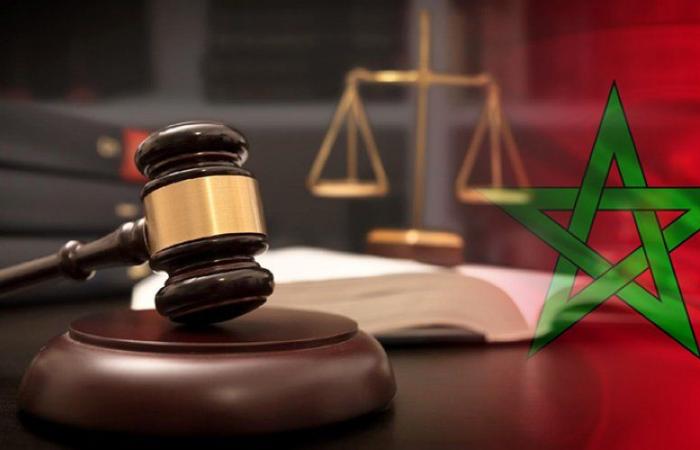The Morocco will vote in favor of universal moratorium on the application of the death penalty. It was during the weekly oral questions session, held on Monday December 9 at the House of Representativesthat the Minister of Justice made this historic announcement. Indeed, although the Kingdom has ratified the International pact relating to civil rights and policies in 1979, it has not yet ratified the Second Optional Protocol onabolition of the death penalty. Currently, Morocco has 88 sentenced to deathamong which is a femme. These convictions are often linked to cases of terrorismas was the case in 2021 against the three authors of themurder of two young people Scandinavian tourists around Marrakech. However, “since 2020, we have commuted the sentences of 161 detainees, replacing them with prison sentences. perpetuity. This approach reflects our progressive commitment towards the humanization of the penal system and the defense of fundamental rights,” announced Mr. Ouahbi on the same occasion.
Thus, after three decades of abstention, Morocco is preparing to break with its traditional position. A position which testifies to the dynamics underway in the Kingdom on both constitutional and legal levels, as well as in terms of practice in this area, according to Mr. Ouahbi. But what does this vote actually mean? For the minister, this vote should illustrate Morocco’s positive interaction with the recommendations of the UN human rights mechanisms, in particular those from the Committee in charge of International Covenant on Human Rights a you Anti-torture committeeas well as the mechanism ofUniversal Periodic Review (UPR).
However, “the support of this resolution, although it marks a step forward, hardly means the automatic abolition of capital punishment,” he observed, recalling that a number of States in favor of this text have laws stipulating the death penalty. In an exclusive statement to “Matin”, Amina Bouayachpresident of National Human Rights Council (CNDH)expressed his “great satisfaction” with Morocco’s decision to vote in favor of the universal moratorium on the death penalty. “This is a crucial step in a process started more than two decades ago with the Equity and Reconciliation Authority. This vote marks an important consecration for the protection of the right to life,” she underlined.
Ms. Bouayach recalled that this step takes place in a particularly complex global context in terms of human rights, particularly in Middle East and in Africa. “We welcome Morocco’s position, which confirms its commitment to defending the right to life, an absolute right on which all other fundamental rights are based,” she said. The president of the CNDH also insisted on the role of the institution in defending this essential right. “We call on the legislator to align national legal provisions with Article 20 of the Constitutionas well as with the international conventions and pacts ratified by Morocco,” she affirmed, highlighting the need for coherent legislative reform to guarantee the primacy of the right to life.
Steps still necessary according to AMDH
For this part, Abdelilah Benabdeslamvice-president of theMoroccan Association for Human Rights (AMDH)welcomed Morocco’s decision to vote in favor of the universal moratorium on the death penalty as a “positive step forward”. He stressed that “since 1993, Morocco has no longer carried out capital punishment, but until now it has refrained from voting for this moratorium. This is an important victory for the human rights movement which has consistently advocated for the abolition of this practice.” Mr. Benabdeslam nevertheless recalled that there were still crucial steps to take to go beyond this vote. “It is imperative to ratify the Optional Protocol to the International Covenant on Civil and Political Rights, as well as the Rome Statute of the International Criminal Court. These commitments are mentioned in the final report of the Equity and Reconciliation Commission and their adoption would mark a decisive turning point,” he said.
Concerning the reaction of Moroccan citizens to this development, the vice-president of AMDH spoke of the challenges linked to public opinion. “In Francefor example, during the abolition under François Mitterrandthe decision was made despite initial disagreement from public opinion. It is sometimes necessary to make courageous decisions which do not always follow immediate popular sentiments, but which are based on universal principles of human rights.” Regarding the deterrence arguments often used to justify capital punishment, he added that “studies show that countries that have abolished the death penalty often have lower crime rates than those that maintain the practice. The European Union is a striking example, in comparison with the UNITED STATES ».
Islamist circles: between acceptance and rejection
Long opposed to the abolition of the death penalty, the Justice and Development Party (PJD) has always defended this sanction as a final defense against the most heinous crimes. Yet, Abdelali Hami Eddinea senior party official, adopts a more nuanced tone. “THE Moroccan courts show themselves to be very careful and balanced in the application of the death penalty. The decision to vote in favor of the universal moratorium is therefore a simple formalization of what Morocco has already applied for 30 years,” he said. But for this political leader, this progress must not stop there. “It is now necessary to review the list of crimes punishable by the death penalty, in order to gradually reduce its use, with a view to its total abolition,” he concluded. In the same tone, Mohamed Yatimformer minister of the PJD, assured us that “the Sharia establishes the principle of Qasas to punish serious crimes, but it also opens the way to forgiveness and alternatives such as diya (financial compensation),” he said, emphasizing the importance of understanding the Islamic spiritual and legislative framework. For Mr. Yatim, Islam is not fixed in its approach to sanctions. “Fundamental concepts such as prevention through doubt and the right to choose in sentencing show that Sharia law offers tools to adapt to changing social and cultural realities,” he explained. In this sense, he believes that the death penalty, although legally maintained, can be suspended or replaced by alternative sanctions. “Morocco, through its choice to limit the application of the death penalty for decades, has already demonstrated significant progress in the defense of the right to life,” he added.
However, in other Islamist circles, Morocco’s decision to vote in favor of a universal moratorium on the death penalty is sparking lively debate. Mohamed FizaziSalafist sheikh, has a clear and uncompromising position. “Abdellatif Ouahbi can say what he wants, but he does not represent the religious or spiritual references of the Moroccan people,” he declared. For Mr. Fizazi, capital punishment is deeply rooted in the precepts of Sharia and sunna. “The Moroccan people are with divine laws. Some crimes are so serious that they only deserve this ultimate punishment,” he said.
The death penalty, the only punishment for pedophiles!
Some associative circles also express reservations about the possible abolition of the death penalty in Morocco. Najia Adibpresident of theassociation “Don’t touch my children”takes a nuanced position on this issue. “The right to life is fundamental, but it must be framed by limits and responsibilities,” she explains. If she says she is in favor of the abolition of the death penalty for cases linked to freedom of speechreligion or political opinions, his opinion is very different when it comes to crimes against children. “When a child is raped, mutilated or killed, the only sanction that can offer any semblance of justice to their family and society is the death penalty,” she says. Najia Adib also insists on the seriousness of pedophilia, which she considers incurable. “These criminals represent a permanent danger. They must be permanently removed from our society to guarantee the safety of our children,” she concludes.






